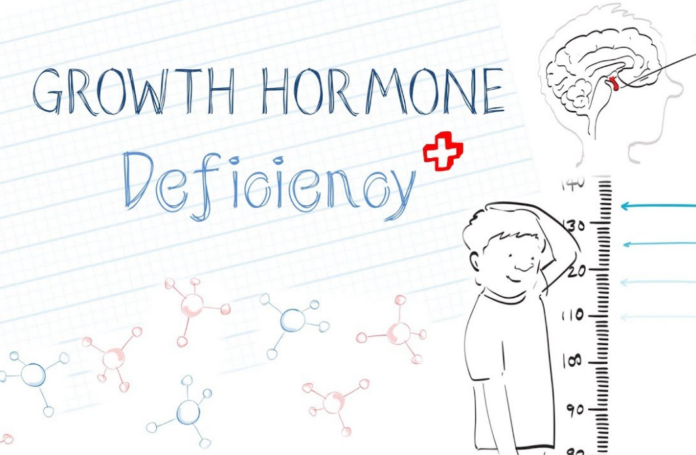Introduction
Height is often seen as a vital indicator of health and development in children and teenagers. While genetics play a significant role in determining height, other factors such as nutrition, hormonal imbalances, and underlying medical conditions can also influence growth. For parents concerned about their child’s short stature, understanding the available treatments and interventions is crucial. In this article, Dr. Zaar explores the most effective treatments for short height in children and teenagers, offering insights into medical, nutritional, and lifestyle approaches to support healthy growth.
Understanding Short Stature in Children and Teenagers
Short stature is defined as a height that is significantly below the average for a child’s age and sex. It can be caused by a variety of factors, including:
- Genetic Factors: If parents are shorter, their child is more likely to have a shorter stature.
- Growth Hormone Deficiency: Insufficient production of growth hormone (GH) can lead to stunted growth.
- Chronic Illnesses: Conditions like celiac disease, kidney disease, or heart problems can affect growth.
- Nutritional Deficiencies: Lack of essential nutrients, such as protein, vitamins, and minerals, can impair growth.
- Endocrine Disorders: Issues with the thyroid or other hormonal imbalances can impact height.
- Psychological Stress: Emotional stress or neglect can sometimes affect growth patterns.
Early diagnosis and intervention are key to addressing short stature effectively. Let’s delve into the most effective treatments available.
1. Growth Hormone Therapy
What is Growth Hormone Therapy?
Growth hormone (GH) therapy is one of the most common and effective treatments for children with growth hormone deficiency or other conditions that affect growth. Synthetic growth hormone is administered through injections to stimulate growth.
Who Can Benefit?
- Children diagnosed with growth hormone deficiency.
- Those with Turner syndrome, Prader-Willi syndrome, or chronic kidney disease.
- Children born small for gestational age who do not catch up in growth.
Effectiveness:
Studies show that GH therapy can significantly increase height in children with growth hormone deficiency, especially when started early. Regular monitoring by a pediatric endocrinologist is essential to ensure optimal results.
Side Effects:
While generally safe, GH therapy may cause mild side effects such as headaches, joint pain, or swelling. Serious side effects are rare but should be discussed with a healthcare provider.
2. Nutritional Interventions
The Role of Nutrition in Growth
Proper nutrition is fundamental for healthy growth and development. A balanced diet rich in essential nutrients can help children reach their full height potential.
Key Nutrients for Growth:
- Protein: Essential for muscle and tissue development. Sources include eggs, fish, lean meat, and legumes.
- Calcium and Vitamin D: Crucial for bone health. Found in dairy products, fortified cereals, and sunlight exposure.
- Zinc: Supports growth and immune function. Present in nuts, seeds, and whole grains.
- Iron: Prevents anemia, which can stunt growth. Found in spinach, red meat, and beans.
Tips for Parents:
- Encourage a diet rich in fruits, vegetables, whole grains, and lean proteins.
- Limit processed foods, sugary snacks, and sodas, which offer little nutritional value.
- Consult a pediatric nutritionist if your child has specific dietary needs or restrictions.
3. Treating Underlying Medical Conditions
Identifying and Managing Health Issues
Certain medical conditions can hinder growth. Addressing these issues can help improve height outcomes.
Common Conditions and Treatments:
- Hypothyroidism: Thyroid hormone replacement therapy can restore normal growth.
- Celiac Disease: A gluten-free diet can improve nutrient absorption and growth.
- Chronic Kidney Disease: Treatment may include medications, dietary changes, or dialysis.
Importance of Early Diagnosis:
Regular check-ups with a pediatrician can help identify and treat underlying conditions early, preventing long-term growth issues.
4. Lifestyle Changes to Support Growth
The Impact of Lifestyle on Height
A healthy lifestyle can significantly influence a child’s growth trajectory. Here are some key factors to consider:
Adequate Sleep:
Growth hormone is primarily released during deep sleep. Ensuring your child gets enough rest is crucial for optimal growth.
Recommended Sleep Duration:
- Toddlers (1-2 years): 11-14 hours
- Children (3-5 years): 10-13 hours
- Teenagers: 8-10 hours
Physical Activity:
Regular exercise, especially activities that involve stretching and jumping, can stimulate growth. Sports like basketball, swimming, and cycling are excellent choices.
Stress Management:
Chronic stress can negatively impact growth. Encourage open communication and provide a supportive environment for your child.
5. Psychological Support and Counseling
Addressing Emotional Well-being
Short stature can sometimes lead to emotional challenges, such as low self-esteem or bullying. Providing psychological support is essential for a child’s overall well-being.
How to Help:
- Foster a positive self-image by focusing on your child’s strengths and talents.
- Seek counseling or support groups if your child struggles with self-esteem issues.
- Educate teachers and peers about the importance of inclusivity and kindness.
When to Seek Medical Advice
If you notice that your child is significantly shorter than their peers or their growth rate has slowed, consult a pediatrician or endocrinologist. Early intervention can make a significant difference in outcomes.
Diagnostic Tests:
- Blood tests to check hormone levels.
- Bone age X-rays to assess growth potential.
- Genetic testing to identify underlying conditions.
Conclusion
Short stature in children and teenagers can be a source of concern for parents, but with the right approach, it can often be effectively managed. From growth hormone therapy to nutritional interventions and lifestyle changes, there are numerous ways to support healthy growth. Early diagnosis and a holistic approach are key to ensuring your child reaches their full height potential.
As Dr. Zaar emphasizes, every child is unique, and their growth journey should be guided by compassion, patience, and evidence-based care. If you have concerns about your child’s height, don’t hesitate to seek professional advice. Together, we can help your child thrive.
If you learn more about short height treatment in children and teenagers, Please visit the drzaar.com


